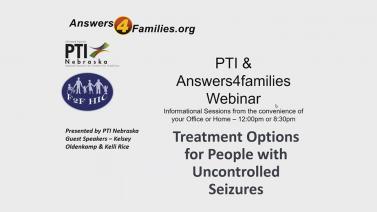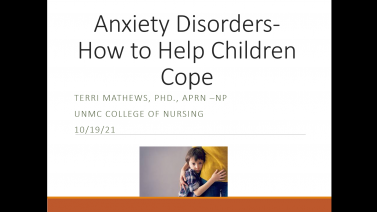School Nurses
Popular Questions
There is a DHHS School Health Program Newsletter. Each edition of the newsletter is shared to the School Nurse Email Discussion Group listserv (snconsult@answers4families.org).
If you are not already signed up for the School Nurse Email Discussion Group, please be sure to sign up!
If you would like to view past editions of the DHHS School Health Program Newsletter, you can view the archive.
American School Health Association: www.ashaweb.org
Nebraska Department of Education Resources on Coordinated School Health Programs: https://www.education.ne.gov/csh/
National Association of School Nurses: www.nasn.org
Nebraska School Nurses Association: https://nebraskaschoolnurses.nursingnetwork.com/
Nebraska Department of Health and Human ServicesDivision of Public Health School Health Program: http://dhhs.ne.gov/Pages/School-Health.aspx
Council on School Health: https://www.aap.org/en-us/about-the-aap/Councils/Council-on-School-Health/Pages/COSH.aspx
Here are some tools that you can review:
Environmental health and safety; The School Health Index (SHI): Self Assessment and Planning Guide 2017 is an online self-assessment guide and planning tool that schools can use to improve their health and safety policies and programs. https://www.cdc.gov/healthyschools/shi/index.htm
A healthy school environment will reduce illness, absenteeism, and nurse office visits. Studies have linked a healthy environment to greater comfort, which may lead to higher academic performance. Here are the EPA's tips for creating a plan for your school's environmental health.
Children showing any sings or symptoms of a contagious or infectious disease are required by law to be sent home immediately. Symptoms may include the following: Fever, flushed face, headache, aches in muscles or joints, unexplained tiredness or listlessness, loss of appetite, stomach ache, nausea or vomiting, diarrhea, convulsions, sore throat, nasal congestion or discharge, unexplained skin eruption, sore or inflamed eyes.
Exclusion from school is outlined in 173 NAC 3 https://www.nebraska.gov/rules-and-regs/regsearch/Rules/Health_and_Human_Services_System/Title-173/Chapter-03.pdf#page=9
CDC webinar series which focuses on a variety of infection control and prevention topics. The webinar series can be viewed on CDC’s Safe Healthcare Webinar Playlist. https://www.youtube.com/playlist?list=PLvrp9iOILTQayOi5lgk08QDgv3GHROtCf
- Immunizations A physical exam by a physician, physician assistant, or advanced practice registered nurse-nurse practitioner must be conducted within six months prior to the entrance of child into the beginner grade and the seventh grade, or in the case of a transfer from out of state, to any other grade of the local school, is required.
- Physical exams A physical exam by a physician, physician assistant, or advanced practice registered nurse-nurse practitioner must be conducted within six months prior to the entrance of child into the beginner grade and the seventh grade, or in the case of a transfer from out of state, to any other grade of the local school, is required.
- 7-009.01 Physical Examination Required: https://www.nebraska.gov/rules-and-regs/regsearch/Rules/Health_and_Human_Services_System/Title-173/Chapter-07.pdf#page=6
- Vision evaluations 7-009.02 Visual Evaluation Required: Visual evaluation by a physician, a physician assistant, an advanced practice registered nurse-nurse practitioner, or an optometrist within six months prior to the entrance of a child into the beginner grade or, in the case of transfer from out of state, to any other grade of the local school, is required. : https://www.nebraska.gov/rules-and-regs/regsearch/Rules/Health_and_Human_Services_System/Title-173/Chapter-07.pdf#page=6
- Individual health plans IHP, is a plan that considers how to deal with what might happen with a student medically while the student is in school. The IHP address medical issues that do not impede the student’s learning. It is a formal agreement between parents/caregivers, the student’s health care provider and the school. The IHP gives the student and his or her family to opportunity to discuss their concerns with school staff, and helps establish student, family, and school roles and responsibilities. It clarifies important things like how medication will be administered, how the student’s health status will be monitored, the location where care will be provided and so will be providing the care. A child who has a health impairment or physical disability, her or she should have an IHP. It documents his or her needs and the services to be provided to that child. Even if a child does not receive medication or infusing during school, it is important for the school to know how to deal with any emergencies related to the disability or health care need. An IHP should be a part of a 504 Plan or Individualized Education Program (IEP).
- The 504 Plan is a plan developed to ensure that a child who has a disability identified under the law and is attending an elementary or secondary educational institution receives accommodations that will ensure their academic success and access to the learning environment.
- The Individualized Family Service Plan (IFSP) and the Individualized Education Program (IEP) is a plan or program developed to ensure that a child who has a disability identified under the law receives specialized instruction and related services. The IFSP is for the birth to 3 population and the IEP is age 3 to 21.
Family Educational Rights and Privacy Act (FERPA) protects student education records.
All school health records are considered part of the educational record, and must be treated as such, retained and protected by FERPA (Family Educational Rights and Privacy Act). FERPA authorizes sharing of information about a student among school personnel who have an education interest in the student. Any record related to a student that is used by the school district constitutes the educational record for a student.
Any record provided or created by an outside agency, and provided to the school, also becomes part of the student record if it is added to the student's folder and used by school personnel.
Documents you might find in the school health record:
- Most recent physical exam
- Immunization record
- Health history
- Health screening results
- Physician communications
- Medication consent forms and administration logs
- Parent communications related to health concerns
- Teacher observations
- Individualized health care plan, if appropriate
- Progress notes
- Referral notes
DHHS has a site with list of school health program guidelines for Nebraska schools






